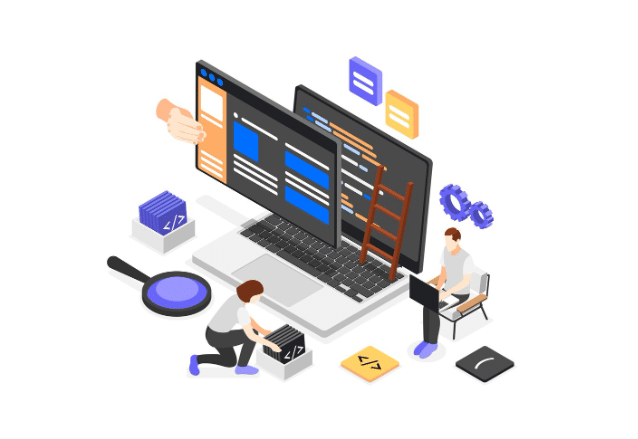
Introduction
Financial literacy is a crucial life skill that equips kids with the knowledge and abilities to manage money wisely and make informed financial decisions. While traditional methods of teaching financial literacy can sometimes be challenging for young learners, coding games offer an innovative and engaging approach to foster financial literacy in kids.
Through interactive and enjoyable gameplay, coding games empower kids with essential money management skills, preparing them for a financially responsible future. This article explores how coding games enhance financial literacy for kids, making learning a fun and rewarding experience.
The Joy of Learning through Play:
Children learn best when they are engaged and having fun. Coding games for kids create a joyful learning environment that captivates their attention and keeps them motivated. These games combine education with entertainment, making financial literacy an exciting journey rather than a mundane chore.
Engaging and Interactive Learning:
Coding games for kids offer interactive experiences that allow them to actively participate in the learning process. By making financial decisions in a safe virtual environment, children can gain valuable insights into real-life financial scenarios without facing any actual risks.
This hands-on experience with money equips them with practical knowledge and skills that they can apply in real-world situations.
Boosting Financial Confidence:
Through coding games, kids can gradually build their financial confidence. As they progress and succeed in various challenges, they gain a sense of accomplishment, boosting their self-esteem and belief in their abilities to make sound financial decisions.
Exploring Financial Concepts Through Games:
Introduction to Basic Financial Concepts:
Coding games for kids introduce fundamental financial literacy for kids in an engaging manner. Concepts like saving, budgeting, earning, and spending are woven into the game’s storyline, allowing kids to understand their relevance and importance.
Virtual Budgeting Challenges:
Virtual budgeting challenges in coding games for kids provide valuable lessons in money management. By allocating resources and managing virtual budgets, children learn to prioritize their spending, make responsible choices, and avoid overspending.
Investment Simulations:
Some coding games incorporate investment simulations, where kids can explore the world of investing. This enables them to grasp the concepts of risk and return, fostering a long-term approach to financial planning.
Building Financial Decision-Making Skills:
Problem-Solving with Limited Resources:
Coding games for kids often present scenarios where resources are limited, teaching them the importance of resourcefulness and strategic thinking. These skills are essential when faced with financial challenges in the real world.
When children encounter situations in the game where they must achieve specific financial objectives with scarce resources, they are encouraged to think critically and devise innovative solutions.
They learn to make trade-offs, prioritize their needs and wants, and optimize their financial decisions for the best possible outcomes. These problem-solving skills not only enhance their financial decision-making abilities but also equip them with valuable life skills that extend beyond money management.
Setting Financial Goals:
Goal-setting is a critical aspect of financial planning. In coding games, children learn to set short-term and long-term financial goals, laying the foundation for disciplined and focused money management. By setting realistic objectives within the game, kids develop a sense of direction and purpose in their financial endeavors.
They understand that financial success requires planning and commitment, and they learn to align their actions with their goals. Moreover, as they achieve their targets within the game, they experience a sense of accomplishment, reinforcing the importance of goal-setting and motivating them to pursue their financial aspirations in real life.
Understanding the Impact of Choices:
Every decision has consequences. Through coding games, kids explore the consequences of their financial choices, allowing them to develop a deeper understanding of cause and effect. When children make decisions within the game, they witness the immediate outcomes of their actions.
This feedback mechanism helps them grasp the direct consequences of their choices and encourages thoughtful decision-making. Whether it’s spending on non-essential items, saving for future needs, or investing in profitable ventures, children become more aware of how their financial choices can shape their overall financial well-being. This heightened awareness empowers them to make informed decisions that align with their financial goals and values
Real-World Applications Through Gaming:
Practical Money Management:
Coding games bridge the gap between the concept of theoretical financial literacy for kids and real-world applications. Children learn to manage money practically, making informed choices to achieve their financial objectives.
Planning for Emergencies:
Coding games introduce kids to the importance of emergency funds. They learn the value of saving for unexpected situations and how it can provide financial security.
Charitable Initiatives and Giving Back:
Financial literacy is not just about personal gain but also about being responsible global citizens. Coding games encourage kids to contribute to charitable initiatives, instilling the value of giving back to the community.
Financial Literacy in a Fun Community:
Learning from Peers:
Coding games often include a social aspect where kids can collaborate, share ideas, and learn from one another. This sense of community enhances the learning experience as they exchange financial tips and insights.
Friendly Competitions:
Friendly competitions within coding games motivate kids to improve their financial decision-making skills. Competing with peers in financial challenges encourages healthy competition and drives them to excel.
Tracking Progress and Achievements:
Coding games provide progress tracking and reward achievements, fostering a sense of accomplishment. This feedback mechanism encourages kids to set new financial goals and work towards achieving them.
Conclusion:
Coding games for kids have become a powerful tool in promoting financial literacy for kids among the younger generation. By combining education and play, these games offer an engaging and interactive platform to learn essential financial concepts.
Through practical experiences with money management, investment simulations, and problem-solving, children develop vital financial decision-making skills. Moreover, these games teach them the significance of setting financial goals, making responsible choices, and understanding the impact of their decisions.
As they explore real-world applications in a fun and supportive community, kids build financial confidence and become financially empowered individuals, well-prepared for a successful future





